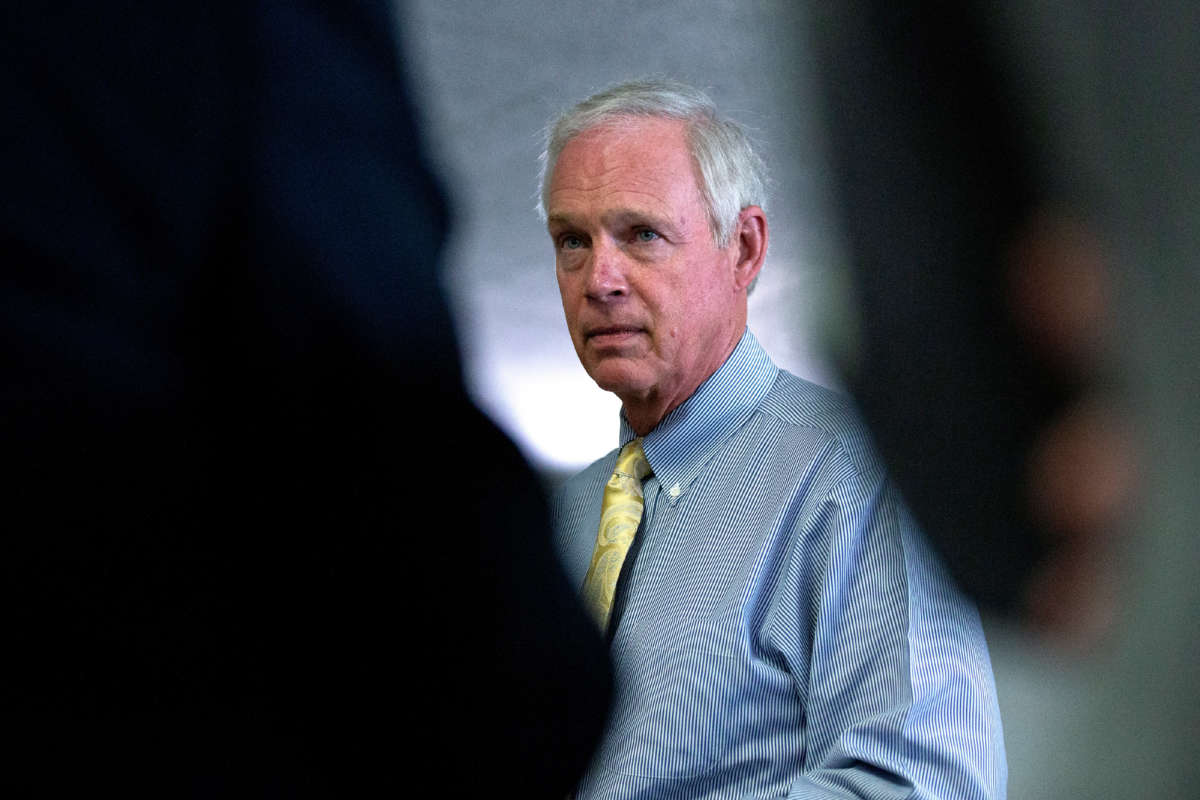Sen. Ron Johnson (R-Wisconsin) has said that Republicans may consider a nationwide ban on abortion if the party wins control of Congress in the upcoming midterm elections.
Johnson told reporters in an interview with The Washington County Daily News that he “completely agree[s]” with the Supreme Court’s decision to overturn Roe v. Wade and upend abortion protections across the country.
“I’ve written up pretty much all I need to say on that decision,” he said, adding that he believes the matter should be decided on by states.
But Johnson also raised the possibility of a Republican-controlled Congress enacting a nationwide abortion ban in the future.
“Maybe Congress can take a look at what the states have done and say ‘we probably ought to place this limit here,’ based on new information or whatever,” he said.
Johnson, who is up for reelection this fall, is currently trailing his Democratic challenger Lt. Gov. Mandela Barnes by seven points, according to a recent Marquette University Law School poll.
Abortion will likely play a pivotal role in Wisconsin’s senatorial election this fall, as Johnson’s views on abortion contradict the views of most of his constituents. According to the same poll, 66 percent of Wisconsinites believe abortion should be legal in all or most cases, while just 30 percent believe it should be illegal.
Johnson’s voting record in favor of abortion restrictions and his past statements on the issue — including bragging about helping to appoint the justices that undid Roe — could prove to be a liability in the upcoming election.
Due to the Supreme Court’s ruling earlier this year, Wisconsin has reverted back to an 1849 statute on abortion that bans the procedure at all stages of pregnancy. Under the statue, residents can only get an abortion if their health is at risk, with no exceptions for rape or incest.
Several Republican lawmakers have spoken about the possibility of imposing national bans on abortion should the party win control of Congress in the midterms. House Minority Leader Kevin McCarthy (R-California) has expressed interest in imposing a nationwide 15-week ban on abortion, for example, while other GOP lawmakers are crafting proposals that would ban the procedure after the first sign of cardiac activity. Senate Minority Leader Mitch McConnell (R-Kentucky) has also expressed support for a nationwide ban.
Anti-abortion views could hurt Republicans at ballot boxes across the country this fall. According to a Kaiser Family Foundation (KFF) Health Tracking Poll from July, 55 percent of Americans say that abortion access is a “very important” issue for them in deciding which candidate to vote for, while 19 percent say it is a “somewhat important” issue. Only 25 percent say it is “not too important.”
Democrats have been using the possibility of a nationwide abortion ban in their campaign messaging, including Johnson’s opponent, Barnes.
“Ron Johnson just came out in favor of a federal abortion ban,” Barnes’s campaign said on Twitter last week. Johnson is “doing everything he can to drag us back in time” to strip people “of their rights and freedoms, he added.
Join us in defending the truth before it’s too late
The future of independent journalism is uncertain, and the consequences of losing it are too grave to ignore. To ensure Truthout remains safe, strong, and free, we need to raise $46,000 in the next 7 days. Every dollar raised goes directly toward the costs of producing news you can trust.
Please give what you can — because by supporting us with a tax-deductible donation, you’re not just preserving a source of news, you’re helping to safeguard what’s left of our democracy.
